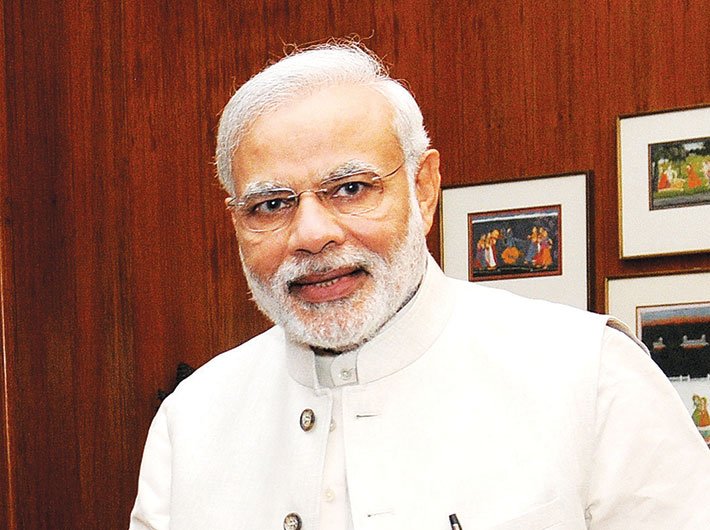When prime minister Narendra Modi laid emphasis on internal democracy within political parties during a Diwali Milan interaction with the media in Delhi, he was merely echoing the sentiments of Syama Prasad Mookherjee, the founder of the Bharatiya Jana Sangh (BJS), the progenitor of the BJP.
In 1950, two years before the formation of the BJS, Mookherjee wrote a “programme for a new political party”. And he theorised, “If democracy has to live, parties must exist. Otherwise democracy may degenerate into a one-party rule and then into a one-man rule.” The obvious reference was to the growing stranglehold of Nehru over the Congress apparatus. This prompted another stalwart and then editor of the Organiser, KR Malkani, to write, “Gone is the Hinduising influence of Gandhiji. And now gone too is the moderating influence of Sardar.”
There is a marked consistency in the evolution of the BJS and later BJP as a political party except for a brief interregnum of the Janata Party phase (1977-80). Its top leadership always insisted on strengthening the core values of the organisational building and inducting a large group of volunteers, motivated by a higher goal of nation-building rather than self-serving interests.
This strategy of party-building stood in good stead as the BJS and the BJP passed through turbulent phases. The journey of the BJS and the BJP in these years is quite analogous to the trajectory of the pre-independent Congress under the leadership of Gandhi, whose abiding faith in secularism was accompanied by incorporation of Hindu symbolism as well. In Nehru’s time, the legacy of a strong organisation of the Congress was a strength for the party which sustained him for a long time before the emergence of a charismatic figure like Indira Gandhi. From the 1970s the Congress started relying more on charisma of its leaders than organisational strength.
But look at the contrast when the BJS did not hesitate to have an alliance with the communists while forming the Samyukta Maharashtra Samiti in 1958 and propping up Aruna Asaf Ali as mayor of Delhi in 1960. Though neither alliance lasted long, it was indicative of the remarkable flexibility in the BJS leadership to learn even from their adversaries the skill of expanding the organisation. Those entrusted with the task of building the organisation in the BJS or the BJP did not allow their ideological predilections to come in the way of the party’s growth.
This history bears significance in today’s context as the BJP has emerged as a party whose phenomenal expansion of the organisational network has positioned itself in an enviable position vis-a-vis the Congress. Modi’s dig at the lack of internal democracy within India’s grand old party has a sound political reasoning. To treat it as a mere rhetoric would be to ignore the elephant in the room.
Unlike the Congress, the BJP has learned from its experience the three effective methods of party expansion. Over the years it has developed an expertise in building up cadres and motivating them to expand the party’s influence. Since much of the core cadre strength is drawn from the RSS’s trained volunteers, they are bound by a set of discipline and core values of the Sangh. And this cadre strength works as a steel frame for the party’s organisation.
Though the Sangh Parivar is averse to developing a personality cult, they have quickly realised the significance of a personality in India’s context. Despite initial hesitation, they agreed to project Atal Bihari as the face of the party. In Modi’s case, the leader’s individual charm was so overwhelming that his numero uno position was accepted as a given.
The BJP’s third effective strategy was nothing but imitation of the old Congress, where ‘notables’ were inducted irrespective of their ideological positions. The manner in which Modi tries to co-opt even ideologically incompatible allies is quite remarkable. Consider the manner in which he allied with Nitish Kumar and still carries on alliance with Shiv Sena despite many hiccups.
Though deeply immersed in the core values of the RSS, Modi often looks beyond the ideological blindfold to consolidate his party’s position. He rather believes in the prescient words of the ideological father-figure of BJS, Deen Dayal Upadhyaya, who said, “The votes are there if we can go out and get them but for that we need organisation and more organisation.” If we paraphrase Mao’s maxim in Modi’s mantra, it will be, “Power grows out of the organisation, not a barrel of gun.”
No doubt the BJP has been building up a formidable organisational structure while the Congress is relying on an “illusion of charisma” of Rahul Gandhi who is still to come to terms with the great political task at hand and his juvenile conduct of tweeting with his pet. A debilitated Congress does not augur well for Indian democracy. But that seems to be the reality.
ajay@governancenow.com
This article appeared on FirstPost.com in a slightly different version.

